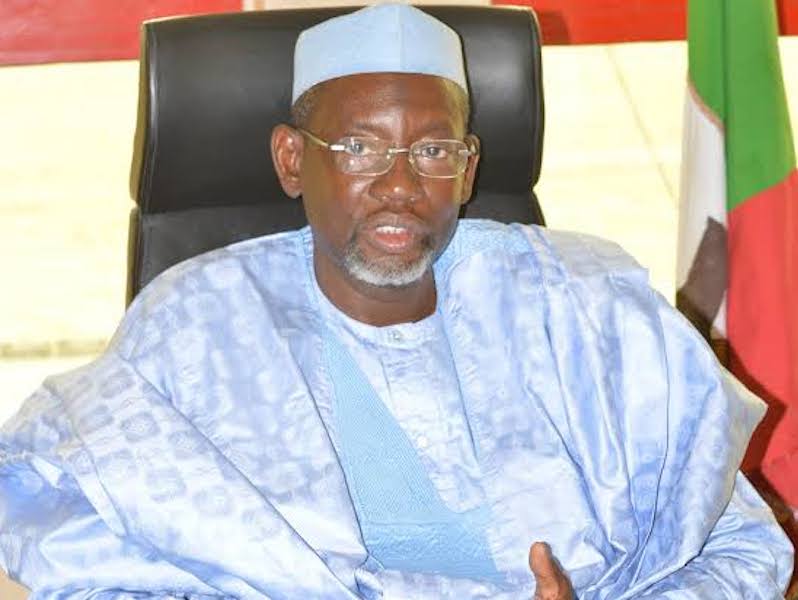
As the 2023 general election draws close, stakeholders have harped on diligent implementation of the newly enacted electoral law among various other suggestions to ensure a free, transparent and credible exercise across the country.
Guest speakers, panelists and commentators expressed these positions while speaking as a panelist at the #FixPoliticsDialogues held on Zoom on Thursday.
Dr. Oby Ezekwesili, Founder of FixPolitics, underlined the importance of sensitising the Nigerian public, adding that Nigerians need some level of reflection.
She stressed that this was paramount because only Nigerians acting together can pressure the three arms of government; executive, legislature, and judiciary, to respond immediately to disrupting the prevalence of what she termed ‘monopoly democracy.’
In agreement with Dr. Ezekwesili, the Coordinating Chair of FixPolitics WSG3, Prof. Remi Sonaiya, encouraged everyone to hold regular discussions on political issues, so as to increase the level of political awareness and stop cultural bigotry.
“…what does it matter if the well-being of Nigerian citizens is met with a leader from any part of the country? What we need, are leaders who will prioritize our country’s interests,” Prof Sonaiya opined.
Executive Director of FixPolitics, Anthony Ubani, stressed the fact about elections are determined by those who vote.
He urged young people to commence organising themselves to go out and register for their Permanent Voters Card (PVCs), receive them, and follow the manifestoes of candidates.
On his part, Executive Director of OrderPaper Nigeria, Oke Epia, urged Nigerians to pay more attention to the quality of lawmakers who will be elected to represent their interests at the National Assembly.
Urging the electorate to be very deliberate about characters who should not be elected to the parliament, he explained that Nigerians do not need lawmakers who put their own interests ahead of the national interest.
On the issue of INEC’s performance as a critical stakeholder in Nigeria’s democracy, Oke
stated that the body has always listened and functioned according to its vision since its inception in the fourth republic.
He however stressed that there are still areas of concern while expressing the desire to see the new Electoral Act put into practice, along with a demonstration of INEC’s independence.
“This new law should be explained down for citizens to grasp since we cannot be motivated to act if we are unaware of the benefits,” he said.
Muhammad J. Kuna, who represented the INEC Chairman at the #FixPoliticsDialogues, stated that progress has been made throughout the years to ensure that the concept of its independence is realised.
Citing sections 83 (1), 158, and 160, Kuna said the 1999 Constitution contains extensive provisions that support the Commission’s independence. He added that the Electoral Act 2022 has expanded on these crucial parts of the 1999 constitution in order to further strengthen INEC’s independence.
The INEC Chair also noted that the country was suffering as a result of the country’s intolerant political culture. This is he says is connected with the fact many African politicians do not have the word ‘defeat’ in their language because of a ‘must-win’ mentality.
Oluseun Onigbinde, Co-founder of BudgIT, stated the need for INEC to understand that it is not the only stakeholder in the electoral process, and so cannot do everything.
“Legitimacy gained through credible elections means that all stakeholders, including young people, Civil Society Organizations, the incumbent government, and everyone else, must play their parts correctly because nothing will work if INEC does its job correctly and the sitting government uses power.”
He further lamented what he described as incredibly low voter turnout, stating that despite having around 90 million registered voters, the country could only garner around 35 million votes.
For Samson Itodo, Executive Director of YIAGA Africa, “elections, take place within a context, thus we need human capital, infrastructure, and security to conduct credible elections.”
Cynthia Mbamalu, Programs Director at YIAGA Africa outlined five points that will help the youth and women achieve their goal of 100 percent political power.
She listed them to include identifying identity (20%), identifying the issues (20%), defining your strategy (20%), outlining your approach (20%), as well as showing up to vote (20%).
“We must vote out political parties that have defective primaries or do not engage in democratic processes, as well as parties that do not represent women, young people, or topics that we care about as a nation. We must also vote out parties that are not performing at all levels,” she counseled.
Mbamalu also called on young people to express their power by voting at legislative elections, stressing if they truly want to influence the political outcome, appropriate individuals are needed in those positions.
On the part of Ndi Kato, Executive Director of Dinidari Foundation: “We have witnessed great improvement in INEC, but the major thing is implementation on all the moves made so far by INEC, else it will be the same old story.”
The #FixPoliticsDialogues had in attendance the United States Ambassador to Nigeria, Mary Beth Leonard; Deputy US Ambassador to Nigeria, Capt Fishbond; the British High Commissioner to Nigeria, Catriona Laing, as well as the European Union Ambassador to Nigeria and the ECOWAS, Samuel Isopi.
#FixPoliticsDialogues is an initiative of FixPolitics, a citizens-led movement geared at structurally changing and innovating the art of politics in Nigeria and beyond.
The Dialogue series serves the purpose of convening healthy debates and dialogues on serious public agenda issues.
#FixPoliticsDialogues has also been described by its organisers and many Nigerians as an important avenue for citizens’ voices to be heard on important national issues.


